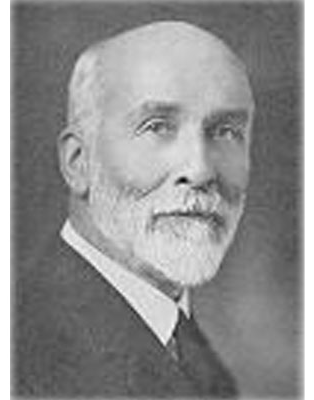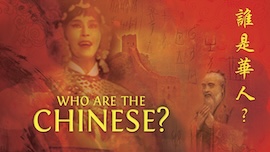No HAZING, Threat, or Humiliation Turned Goforth from God’s Work

[Jonathan Goforth. Public domain / Wikimedia File:Jonathan Goforth.png]
As a teenager in 19th-century Canada, Jonathan Goforth showed the hard work, quick thinking, and physical courage that would mark his entire life. He managed his father’s second farm. Poor, he made his own clothes. Neighborly, he helped others. One instance could have cost him his life. At a barn-raising, he heard a cry that the structure was giving way. With no time to run to safety, he could only stand in place as beams plunged down, but he managed to dodge between them to escape unhurt.
At eighteen he became a Christian and immediately began seeking souls. In the mid 1880s he attended Knox College, Toronto, naively expecting he’d find deep Christian fellowship and soul-winning passion like his own. His gauche home-made clothes led city-raised students to disdain him and his stories of slum and prison work irritated them. The entire student body united as one to haze and humiliate him. Eventually his passion and faith won almost all of them to admiration. When he went as a missionary to China, many supported him.
In China, he learned to trust God for every need. Did he need a well-situated property for his base of operations? He prayed for it. Did he need evangelists to help with the work? He prayed for them. Did Mrs. Goforth need a sewing machine? He prayed for that, too. (Some of Rosalind Goforth’s answers to prayer are told on 25 October “Rosalind Bell-Smith Goforth Suffered Much but Saw Prayers Answered.”)
Two divine interventions especially stand out. In the first, Goforth labored long to learn Chinese, but made so little headway he told Rosalind that unless something changed he would fail as a missionary. That very day he was able to find the phrases he needed to preach. Two months later a letter came from Knox College saying students had been especially led to pray for him on a certain day and asked if anything special had taken place that day. It was the day before his language breakthrough.
In the second instance, Goforth was overburdened with house repairs and other obligations, while preaching several times each day to curious Chinese who came to see the “foreign devils.” Meanwhile Rosalind was preaching herself hoarse to women every day. Both realized they were close to breaking. Goforth took Philippians 4:9 as a reliable statement from the apostle Paul: “My God will supply all your needs.”
“We need an evangelist,” he said. “Surely God will supply.” He and Rosalind made it a special matter of prayer that morning. The next day a decrepit, starving, ex-addict appeared. Having become a Christian, Wang Fulan was no longer in demand as a story teller and had no income. Goforth fed him a meal, dressed him in a decent outfit, and set him to work that very afternoon. Crowds hung on Wang’s words as he told the greatest story of all; and for three years, until his early death, he lived only to gather souls into Christ’s kingdom.
Yes, the Goforths saw God at work in their lives, but they paid a heavy price in discomfort and suffering. They rode in bone-jarring carts; faced suspicion and threats; ate repulsive food; spent weary nights on cold, lumpy beds; lost children to plagues; battled fleas; had their goods stolen; endured serious wounds and illnesses; and relinquished privacy. Modernist preachers at home cold-shouldered them. The home board, lacking both vision and money, tried to curtail their efforts.
At the start of their last term in China, the elderly Goforths found their plans blocked in every direction they turned. Finally a door opened for them to work in Manchuria. They arrived to their base camp at Szepingkai on this day, 28 April 1927. Soon it became apparent why God had blocked them from going anywhere else: each of the areas they had attempted to serve was closed because of civil war, whereas Manchuria presented abundant openings.
Although in his seventies and often desperately ill and losing sight in both eyes, Jonathan Goforth pushed forward. Manchuria had recently opened several railways and he traveled on these to found churches in remote cities. Since the home board could not fund the necessary work or afford additional missionaries, Goforth hired Chinese evangelists whose options were limited by the ongoing civil war. He trusted God to provide their salaries and God always did.
Meanwhile, their rental property in Szepingkai was ideally located along a major road. One of Goforth’s innovative ideas was to keep the chapel heated all winter so cart drivers could come inside to warm up—and hear the gospel. Many were saved. Manchurian Christians soon funded their own churches. Jonathan and Rosalind authored several books about the China work. The details of this story are mostly drawn from Rosalind’s Goforth of China.
—Dan Graves
- - - - -
Sharing the gospel is aided by understanding those with whom we share it. Who Are the Chinese? answers many questions and also tells of some Chinese who came to faith in Christ. Watch at RedeemTV.
Who are the Chinese? can be purchased at Vision Video.
Other Events on this Day
- Shaftesbury's Painful Childhood Made Him Help the Hurting
- BISHOP POORE BROUGHT VISION AND GREAT ABILITY TO SALISBURY







